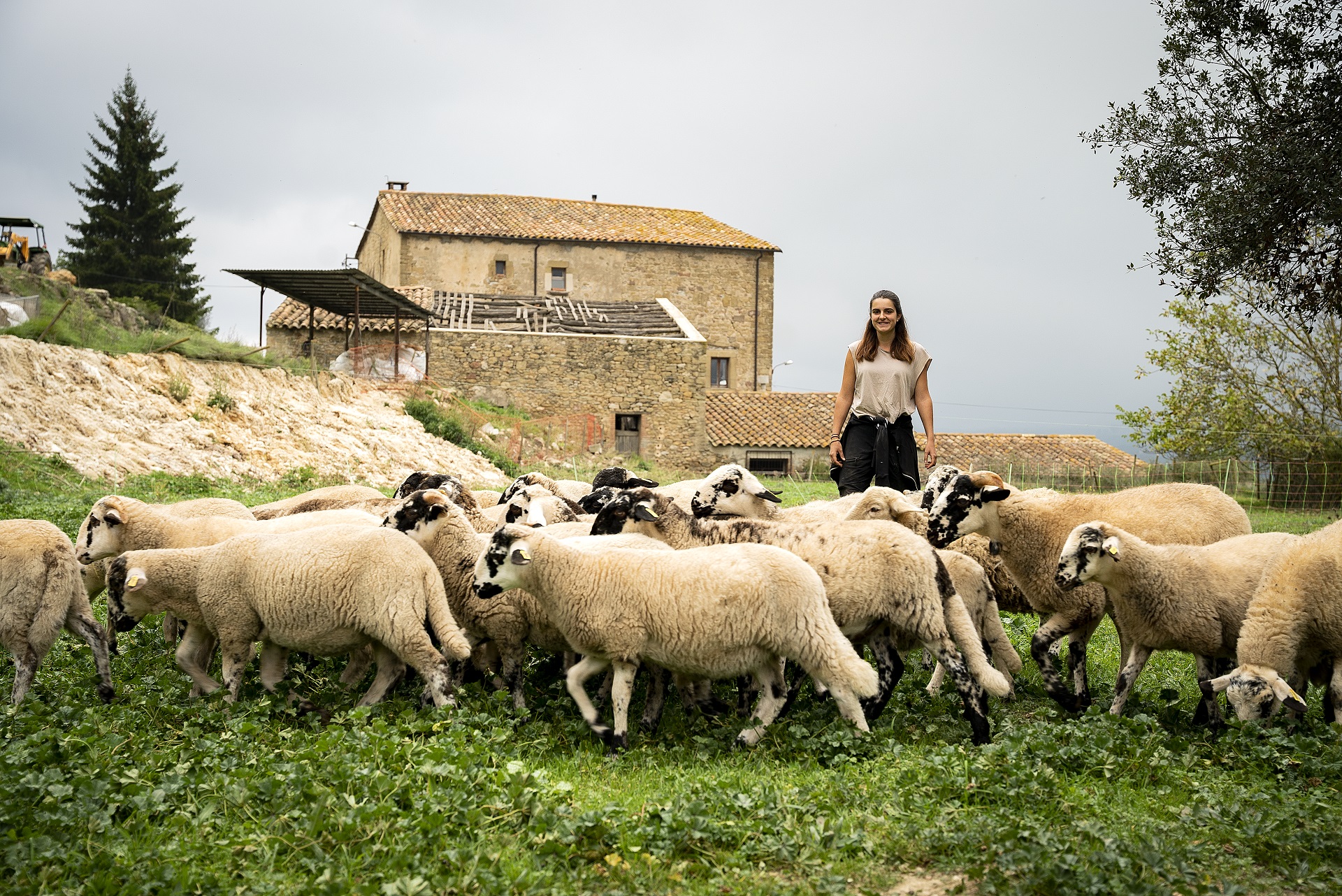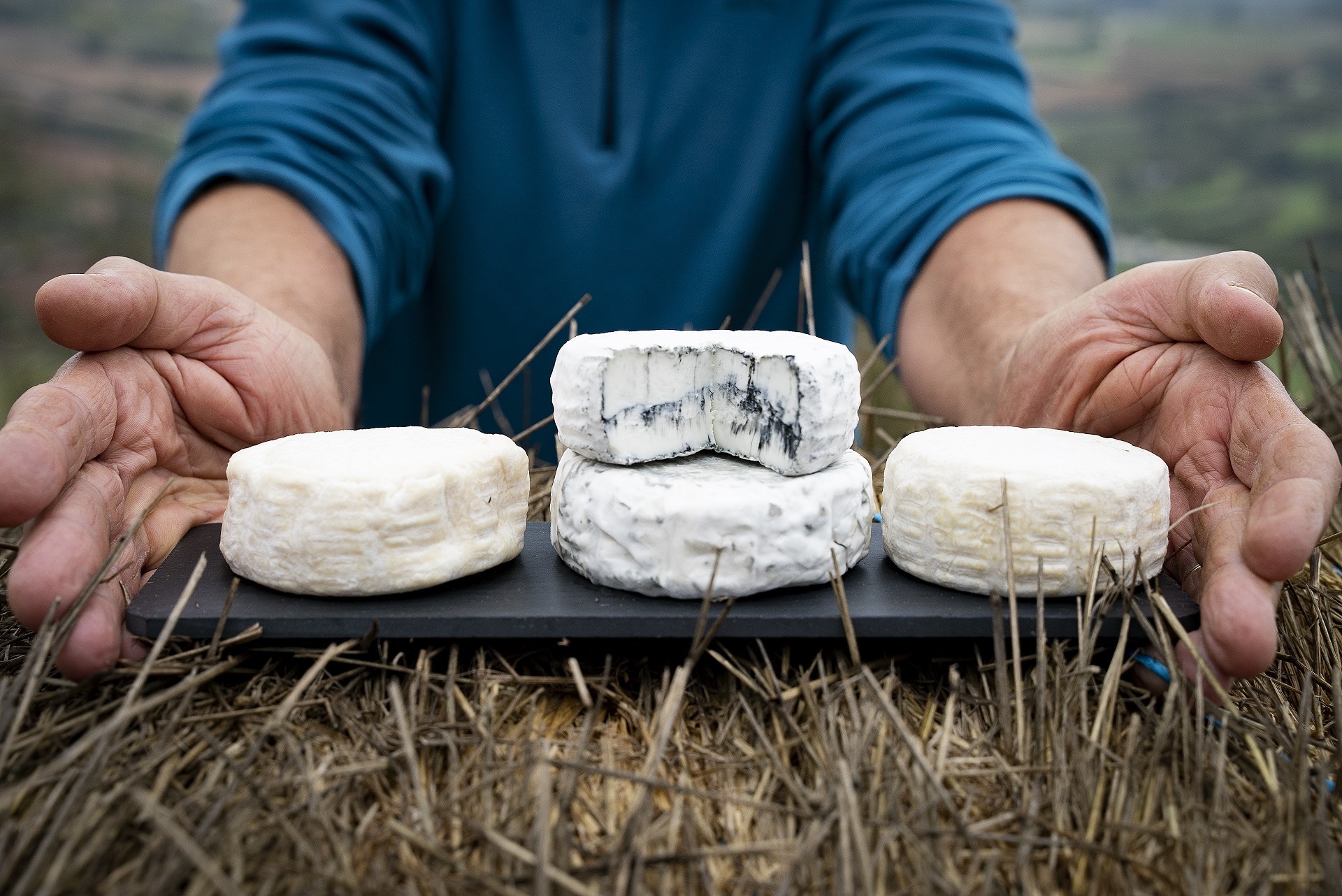On Friday, 7th May, the fifth competitive creativity workshop organized by the Barcelona Provincial Council within the framework of BCN Smart Rural took place. This project is co-financed by the European Union through the ERDF funds. The sessions provide a firsthand understanding of the future vision of agricultural and food systems held by mayors, councillors, technicians, and experts in agricultural development in the region. It helps to comprehend the actions they would prioritize in their municipalities. All this data, strategies, and proposed actions will be gathered in a new digital platform developed by the Barcelona Provincial Council. It aims to address the needs and challenges identified in different territories.
This fifth day had the active participation of Montserrat Barniol, mayoress of Alpens, Marissa Trullàs, councillor for Rural Development of Artés, and Uriel Montesinos, councillor for Economic Promotion of Navàs, among other political leaders, technicians and experts in the 'field of agroecology and local food systems in the counties of Moianès and Bages. They were all invited by Sònia Callau, head of the Agrarian Territorial Directorate of the Barcelona Provincial Council and coordinator of the BCN Smart Rural strategy. The goal was "to get away from isolated visions and promote in a coordinated way a sustainable agri-food system based on proximity".
Recover the vegetable gardens and orchards
Organized online, the session began by reviewing the main characteristics of the agri-food sector in the towns and cities of Central Catalonia. Among the analyzed data, the decrease in the number of agricultural holdings and the increase in their size stand out, in addition to the predominance of cereal cultivation, which occupies 74% of the territory's agricultural surface. Also, the fact that 41% of farm owners are over 60 and only 25% are women.
But the data that most alerted the attendees were the small area dedicated to crops (only 22% of the total), the limited implementation of organic agriculture (only 7% of the total cultivated area), the scarcity of markets (there is only one municipal market and two farmers' markets in a territory made up of 40 municipalities and with a population of 194,500 inhabitants), and, above all, the progressive loss of vegetable gardens and orchards. In fact, according to data from the latest analysis report BCN Smart Rural, entitled "Lands that Feed", neither Bages nor Moianès have enough land dedicated to the cultivation of vegetables and sweet fruit to feed their population with local products.
With an eye on the 2030-2050 horizon
After analyzing the current indicators, the meeting participants were divided into two groups, where they were encouraged to point to the 2030-2050 horizon and debate the following questions:
1. How do we facilitate generational succession and access to land, both for people with a farming tradition and in the new farming community?
2. How do we increase the added value of local agricultural products and the profitability of micro-enterprises in the agri-food sector?
3. How do we reduce the emissions generated by food production and transport? And how do we increase the carbon sequestration capacity of the agricultural soil? In other words, how can we get the food systems in our territory to achieve and even contribute globally to reducing their carbon footprint to zero?
4. How do we get 100% of schools to serve local or local food?
5. How do we organize the sale of food guaranteeing the right of citizens to buy local products?
6. How do we promote the consumption of local food, whether in homes, restaurants or canteens in companies, hospitals, public services, etc.?
The participants had the opportunity to share their vision on the action proposals and future challenges in each of these themes and to prioritize the actions to be developed through an online voting application.
Specifically, the experts from Moianès and Bages gave special importance to the fact of bringing producers and consumers of local food together through direct or short-circuit sales systems; promoting land banks and free brokerage services that connect owners of disused farmland with people who want to start an agricultural activity; and value local food, informing the public about the benefits that its consumption brings for the health of people and the planet.
More information about the competitive creativity workshops is in this link.
— BCN Smart Rural Editorial —



